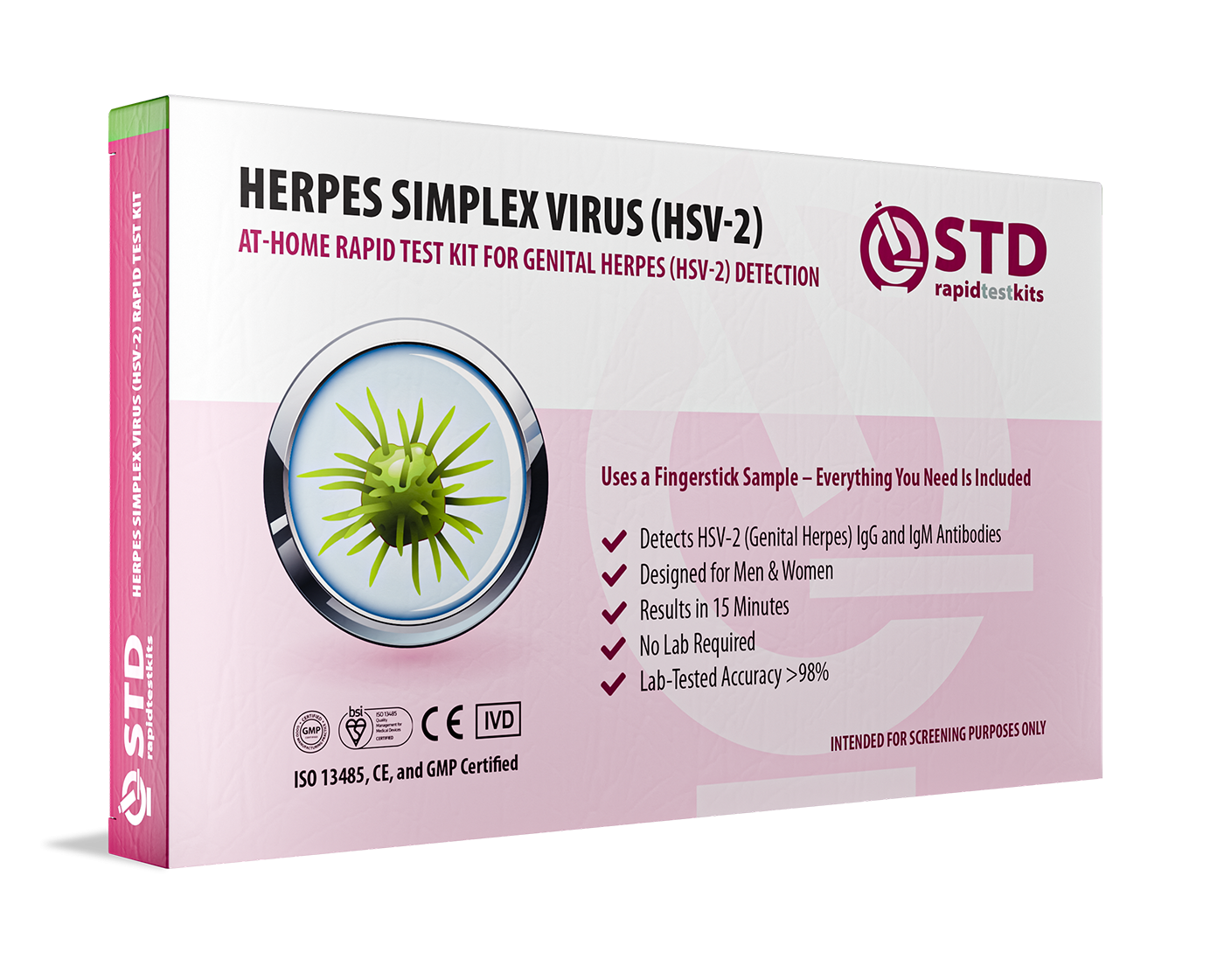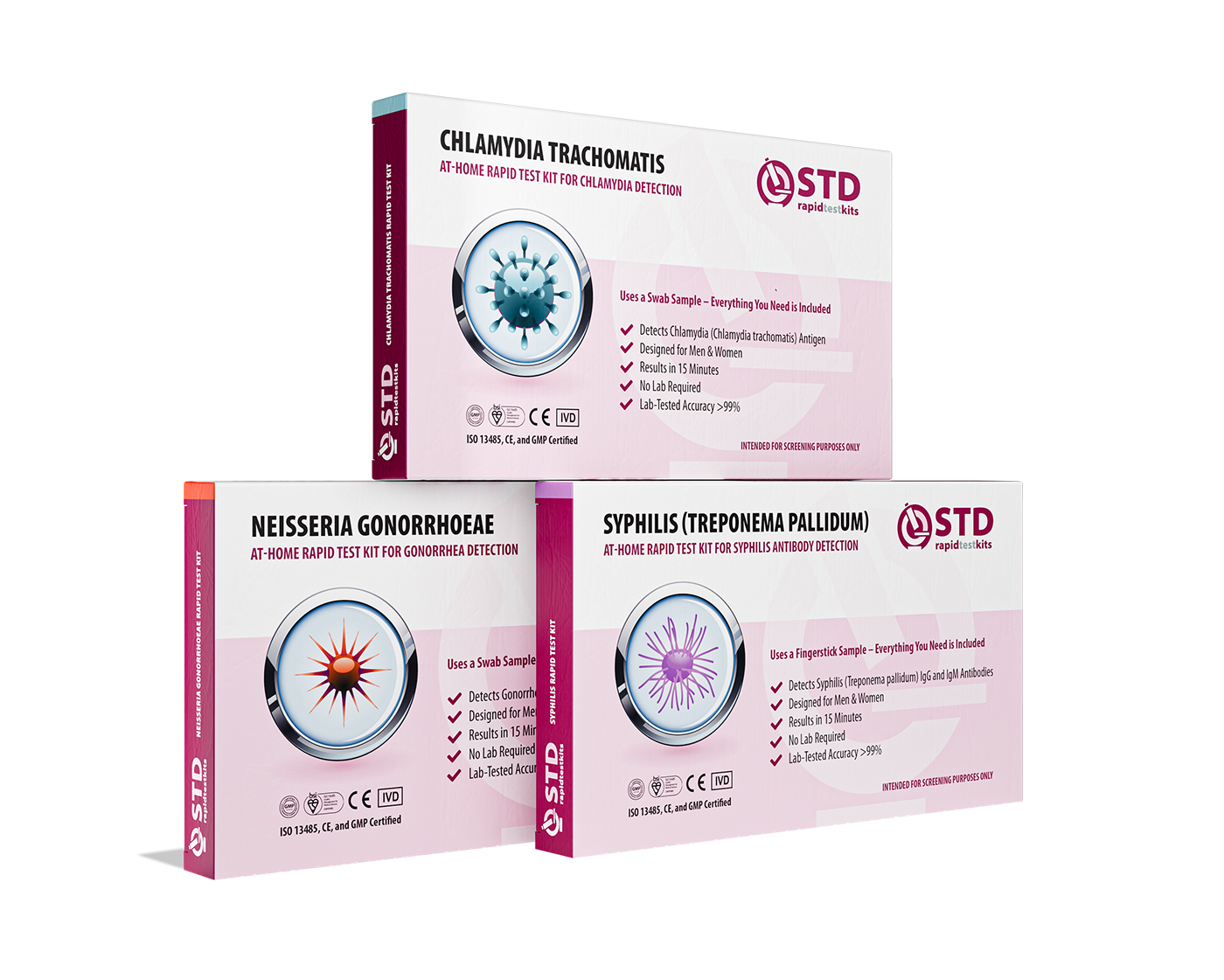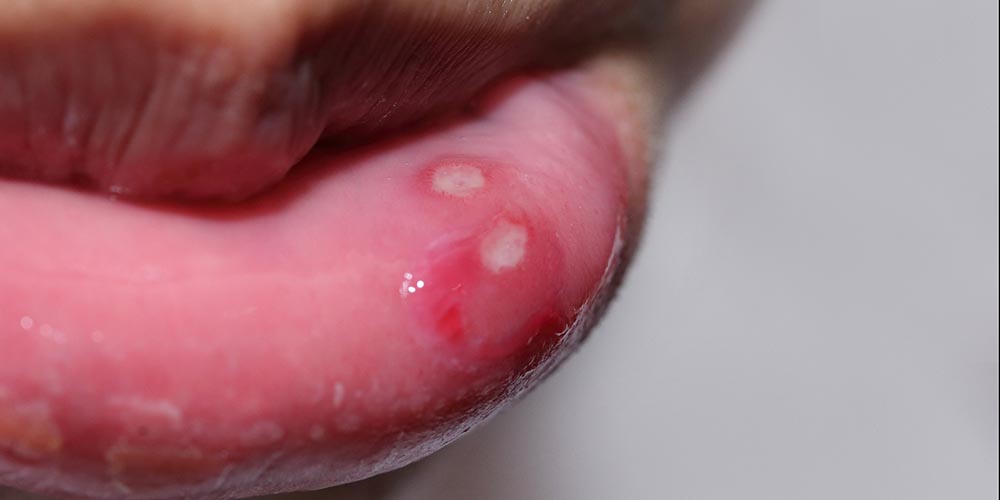When Herpes Comes Back (Again): What Recurrence Really Means
Quick Answer Box
Herpes outbreaks are triggered by factors like stress, illness, hormonal shifts, friction, and even sunlight. These triggers reactivate the virus in your nerve cells, causing it to travel back to the skin and cause symptoms like blisters, tingling, or sores.
Your Nervous System Is Herpes’ Favorite Hideout
After the initial infection, the herpes simplex virus doesn’t leave your body, it hides. Whether you’ve got HSV-1 or HSV-2, the virus retreats into your dorsal root ganglia (nerve clusters near your spine) and goes dormant. It doesn’t replicate. It doesn’t move. It just waits.
But herpes isn’t lazy. It’s opportunistic. The moment your immune system is distracted, the virus sees an opening. It travels back down the nerve fibers to the skin or mucous membranes where it first entered, setting off an outbreak in the exact same place, or somewhere close by.
This reactivation isn’t random. It’s triggered by signals your nervous system sends, signals that say, “Hey, we’re dealing with something else right now, you can come out.” These signals might come from stress hormones like cortisol, inflammatory responses, or physical irritation in the area.
Understanding that herpes responds to your nervous and immune system explains why outbreaks aren’t just about being “sick.” They’re about balance, and what happens when your body tips out of it.
People are also looking for...Can the pill trigger a Herpes outbreak?
Stress Is the Most Common, and Most Misunderstood, Trigger
Almost every herpes-positive person eventually notices it: a big work deadline, a messy breakup, or a sleepless week is followed by an outbreak. It’s not a coincidence. Stress is one of the most powerful herpes triggers, and it works on multiple levels.
First, stress floods your body with cortisol, a hormone that suppresses immune activity. Your white blood cells back off. Your inflammation responses shift. And that gives herpes, usually kept in check by your immune defenses, a green light to wake up.
Second, stress affects behavior. When you're overwhelmed, you sleep less, eat poorly, and drink more. Maybe you skip meds or self-care routines. All of this adds up to an environment where the virus feels safe to reemerge.
And third, there’s the emotional toll. Many people experience herpes outbreaks after emotional trauma: grief, loss, abuse, or mental health crises. These aren’t just “feelings”, they’re neurological events that impact the same pathways where herpes hides.
The worst part? Stress is hard to control. You can’t quit your job or erase your breakup just to keep herpes at bay. But what you can do is notice the connection. Start tracking your symptoms. Learn what stress looks like in your body. And when you feel it building, that’s your cue to rest, hydrate, and get ahead of the outbreak before it takes over.
Illness and Other Infections Give the Virus an Opening
Your immune system is like a bouncer at the club. As long as it's watching the doors, herpes stays put. But the moment that bouncer gets distracted, by a cold, flu, COVID, or even a skin infection, the virus slips through.
When you’re sick, your body diverts resources to fight the immediate threat. Fever, inflammation, fatigue, they’re all signs your immune system is overwhelmed. Herpes sees this and reactivates.
People often report outbreaks after:
- A bout of the flu
- Recovering from strep throat
- Dental surgery or wisdom tooth removal
- Respiratory infections
- Gastrointestinal bugs
Even vaccines can occasionally trigger reactivation, not because they’re unsafe, but because they stimulate the immune system and create a temporary window of vulnerability.
Some people blame their medication or illness directly. In truth, it’s the immune distraction, not the treatment, that allows the virus to sneak out. If you’re prone to flare-ups after being sick, talk to your provider about prophylactic antiviral use during those high-risk periods. It’s not overkill, it’s strategy.
Check Your STD Status in Minutes
Test at Home with RemediumGenital Herpes Test Kit

 For Men & Women
For Men & Women Results in Minutes
Results in Minutes No Lab Needed
No Lab Needed Private & Discreet
Private & DiscreetOrder Now $45.99 $49.00
Hormonal Shifts Create the Perfect Storm for Reactivation
If you have a menstrual cycle, you may already know this: herpes loves to show up the week before your period. It’s not imaginary, and it’s not your fault. Hormones are legitimate outbreak triggers.
Here’s how it works:
- Progesterone and estrogen fluctuate before and during menstruation. These hormones influence immune system function, especially mucosal immunity in the vagina and vulva.
- Right before your period, estrogen dips, and your immune defenses weaken slightly. That’s enough to give herpes a head start.
- During ovulation, increased friction from sex (when libido is higher) may also irritate tissues and make reactivation more likely.
This is why some people experience cyclical outbreaks like clockwork, monthly or bi-monthly. It can feel like your body is betraying you on a schedule.
Tracking your cycle and noting when symptoms appear can help you preempt outbreaks. Some people benefit from short courses of antivirals around their period. Others find relief with supplements, stress reduction, and reducing sexual friction during ovulation.
The key is not to fight your hormones, it’s to learn how your body dances with them, and where herpes cuts in.
People are also looking for...Is antiviral treatment absolutely effective in preventing transmission of herpes?
When Sex Feels Good but Leaves You With a Flare-Up
You’re in the moment. It’s hot, it’s intense, it’s everything it should be, until a few days later, you’re itching, tingling, and spiraling. You didn’t have an active sore. They didn’t either. So why is herpes suddenly flaring up?
One word: friction.
Sex, especially rough, extended, or unlubricated sex, can irritate the skin and mucous membranes where herpes tends to lie dormant. Even gentle sex can do it if the tissue is dry, inflamed, or healing from a previous outbreak. The microscopic tears you never feel can be enough to tell the virus: hey, the coast is clear.
This goes for all kinds of sexual contact, vaginal, anal, oral, and even intense genital rubbing. Add in stress, hormonal changes, or a recent illness, and you’ve got a perfect storm for reactivation.
It doesn’t mean you can’t have sex. It means you may need to plan it around your body’s rhythms. Using plenty of lube, resting between rounds, and avoiding contact during prodrome (when you feel early symptoms) can help.
And if you notice that sex is a consistent trigger for you, talk to your doctor about suppressive antiviral therapy, a daily medication that can reduce both outbreaks and transmission risk.
Your sex life isn’t over. It just needs a strategy.
Sunlight, Cold Wind, and the Weather You Didn’t See Coming
This one surprises people, especially those with oral herpes (HSV-1). But ask anyone who’s ever gone skiing or hit the beach unprepared: UV exposure and cold wind are major triggers.
Here’s what’s happening:
- Ultraviolet light from the sun weakens the immune defenses in your skin, especially on the lips, nose, and face.
- The virus, already chilling in your trigeminal ganglia (nerve root near your jaw), detects lowered resistance and makes its move.
- By the time your lips start tingling or tightening, it’s already on the surface.
Similarly, cold air and wind dry out the skin and create tiny cracks in the lips and nose. This physical irritation mimics an immune compromise and can cause a reactivation.
People often notice:
- Cold sores after sunbathing
- Outbreaks after skiing, hiking, or swimming
- Recurrence after air travel or winter exposure
Prevention is about protection. For oral herpes, that means using SPF lip balm year-round, moisturizing your skin barrier, and keeping lips covered in harsh weather.
For genital herpes, UV exposure is less of a direct trigger, but stress, travel fatigue, and dehydration from vacation can still provoke a response. Don’t underestimate what your environment does to your immune defenses.
Check Your STD Status in Minutes
Test at Home with Remedium3-in-1 STD Test Kit

 For Men & Women
For Men & Women Results in Minutes
Results in Minutes No Lab Needed
No Lab Needed Private & Discreet
Private & DiscreetOrder Now $69.00 $147.00
For all 3 tests
Fatigue Isn’t Just “Being Tired”, It’s an Open Door
Sleep isn’t just rest. It’s when your immune system resets, your cells repair themselves, and your nervous system processes stress. So when you deprive yourself of rest, you’re not just tired, you’re vulnerable.
Chronic sleep loss, overwork, physical burnout, these are all common triggers for herpes outbreaks. Even one rough night before a big deadline can be enough to light the fuse.
You may notice a pattern:
- Staying up late → tingling the next day
- Jet lag → flare-up on day 2 of vacation
- Post-marathon exhaustion → oral sore by Monday
This isn’t about weakness. It’s about balance. When your body is stretched too thin, the virus senses it. It’s not personal, it’s opportunistic.
The solution? Prioritize rest like you prioritize your meds. If you feel run-down, consider that a prodrome symptom in itself. Cancel plans, take a bath, down some water, and give your immune system a fighting chance.
Fatigue won’t always trigger a flare, but enough cumulative burnout absolutely will.
People are also looking for...Should I be worried if the same bump keeps coming back in the same spot?
Food Fears and Supplement Myths: What’s Real and What’s Not
You’ve probably heard that nuts, chocolate, and coffee trigger herpes. Or that lysine supplements prevent outbreaks. Or that arginine is the enemy.
Here’s what the science says: maybe.
The theory goes like this:
- Arginine is an amino acid the herpes virus uses to replicate.
- Lysine competes with arginine for absorption and may slow viral activity.
- Foods high in arginine (nuts, seeds, chocolate, oats, caffeine) might give the virus a boost.
- Supplements with lysine might keep it in check.
Some people swear by this. Others notice no difference. That’s because individual triggers vary. One person may break out after a chocolate binge. Another can down espresso and cashews with no issue.
There’s no harm in trying lysine (1,000–3,000 mg daily during outbreaks is common), but it’s not a cure. It’s one potential tool in a bigger toolbox.
If you’re tracking outbreaks and notice a pattern with certain foods, adjust accordingly. Just don’t get sucked into Instagram “herpes diets” that promise too much and shame too often.
Order Now $45.99 $49.00 Check Your STD Status in Minutes
Test at Home with Remedium
Genital Herpes Test Kit




FAQs
1. Can you feel a herpes outbreak coming?
Yes, this is called the prodrome phase, and it’s often your best early warning. You might feel tingling, itching, burning, or nerve pain in the area where the outbreak usually appears. Some people also get headaches or flu-like symptoms. If you notice these signs, antiviral meds may help stop the outbreak before it fully forms.
2. Why do I get outbreaks after sex?
Friction, micro-tears, hormonal shifts, and even heightened emotional intensity can trigger outbreaks. If your body is already stressed or your immune defenses are low, sex can tip the scale. Lube, rest, and timing your encounters around your own patterns can reduce the risk.
3. Do periods trigger herpes?
For many people, yes. Hormonal fluctuations, especially the dip in estrogen right before menstruation, can lower immune protection in the genital area. Combine that with stress, fatigue, or irritation from pads or tampons, and it’s a common outbreak window.
4. Can sunlight really trigger herpes?
Absolutely. Especially with HSV-1, sun exposure can weaken local immune responses in the skin. Cold sores often appear after sunburns, beach trips, or skiing. SPF lip balm and hats help. For HSV-2, the sun may not be as direct a trigger, but heat, sweat, and travel stress can still affect outbreaks.
5. Does coffee or chocolate cause outbreaks?
Maybe, but not for everyone. These foods are high in arginine, which may help herpes replicate. Some people are sensitive to it; others aren’t. If you notice a pattern, try reducing those foods around your typical outbreak times and see what happens.
6. I only get herpes when I’m stressed, is that normal?
Totally. Stress is the #1 trigger for most people. It affects your immune system, sleep, diet, and mental health, all of which influence the virus. Managing stress won’t cure herpes, but it can dramatically reduce outbreak frequency.
7. Can I get herpes again in a new spot?
Yes. While herpes tends to recur in the same area, it can show up on nearby skin or mucosal zones, especially if there’s friction, a skin tear, or immune suppression. The virus travels along nerve paths, so new spots may still be linked to your original infection.
8. How long do herpes triggers take to cause symptoms?
It varies. Some people notice symptoms within 24–48 hours of a trigger (like sex or stress). Others experience a delay of several days. Tracking your body’s rhythm is key. Write down your symptoms, exposures, and triggers, it can make patterns clearer over time.
9. Will taking antivirals stop outbreaks completely?
Not always, but they can help a lot. Suppressive therapy (daily antivirals) can reduce outbreak frequency and severity, and lower your chances of passing the virus to a partner. Talk to your provider if you’re getting more than 4–6 outbreaks a year, or even just a few that really affect your life.
10. Can I still have sex if I feel a prodrome?
It’s risky. Prodrome means the virus is active, even if you don’t see a sore. That’s when transmission risk is high. If you feel a tingle, itch, or raw spot, hold off. Let your body settle. Communicate with your partner. Protecting them also protects your peace of mind.
You're Not at War with Your Body
If you live with herpes, you know how exhausting it is to constantly wonder “Did I cause this?” after every outbreak.
Maybe it was that deadline. Maybe it was the wine. Maybe it was that perfect night that ended in three days of raw skin and regret. Maybe you did everything right, and it still happened.
That’s the cruel thing about herpes: it’s persistent, but not predictable.
So here’s the truth. You’re not dirty. You’re not weak. You’re not failing at management. You’re learning, about your body, your triggers, your patterns. And that learning takes time.
What helps is noticing what throws your balance off. Tracking when things flare. Asking for antivirals before it starts. Drinking water. Resting early. Saying no to sex when something feels off. Not blaming yourself for having a virus that 1 in 6 adults lives with, quietly, invisibly, and often alone.
But you’re not alone anymore. Take back your data, your dignity, and your direction, test with the Complete STD Home Test Kit Package and start managing herpes on your terms.
Sources
3.- Genital Herpes – Wikipedia










